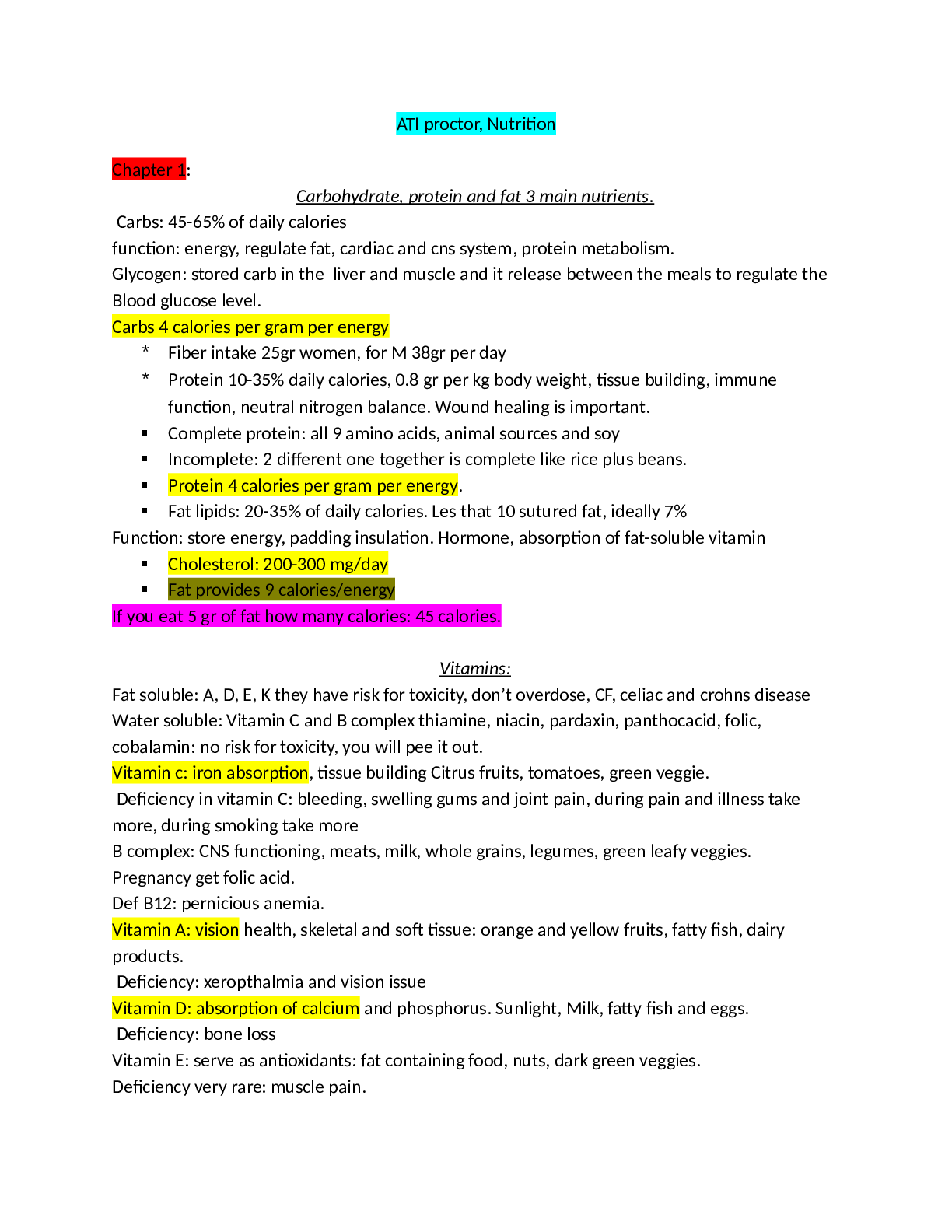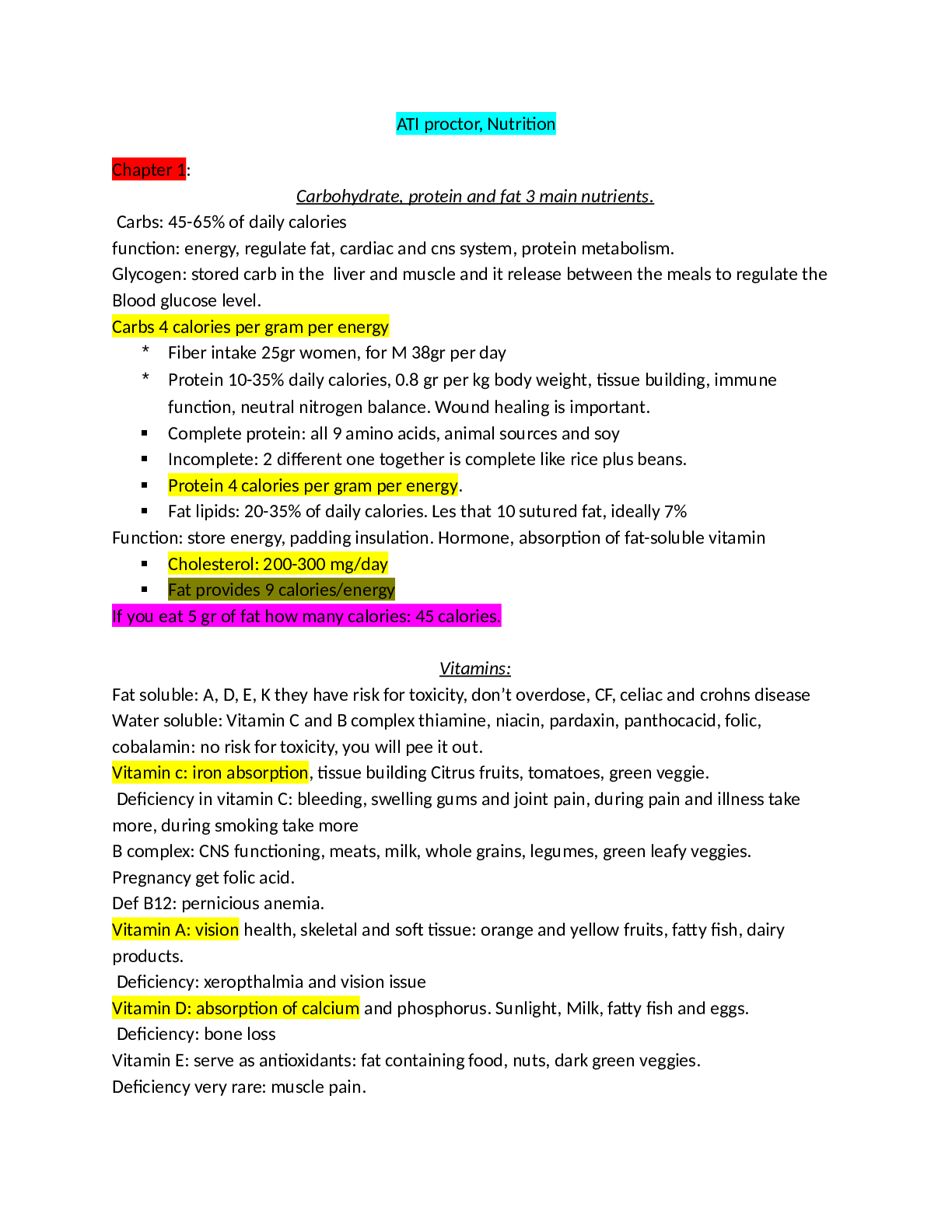ATI proctor, Nutrition
Course
Project Management
Subject
Chemistry
Category
Lecture Notes
Pages
13
Uploaded By
ATIPROS
Preview 4 out of 13 Pages


Download all 13 pages for $ 6.63
Reviews (0)
$6.63
